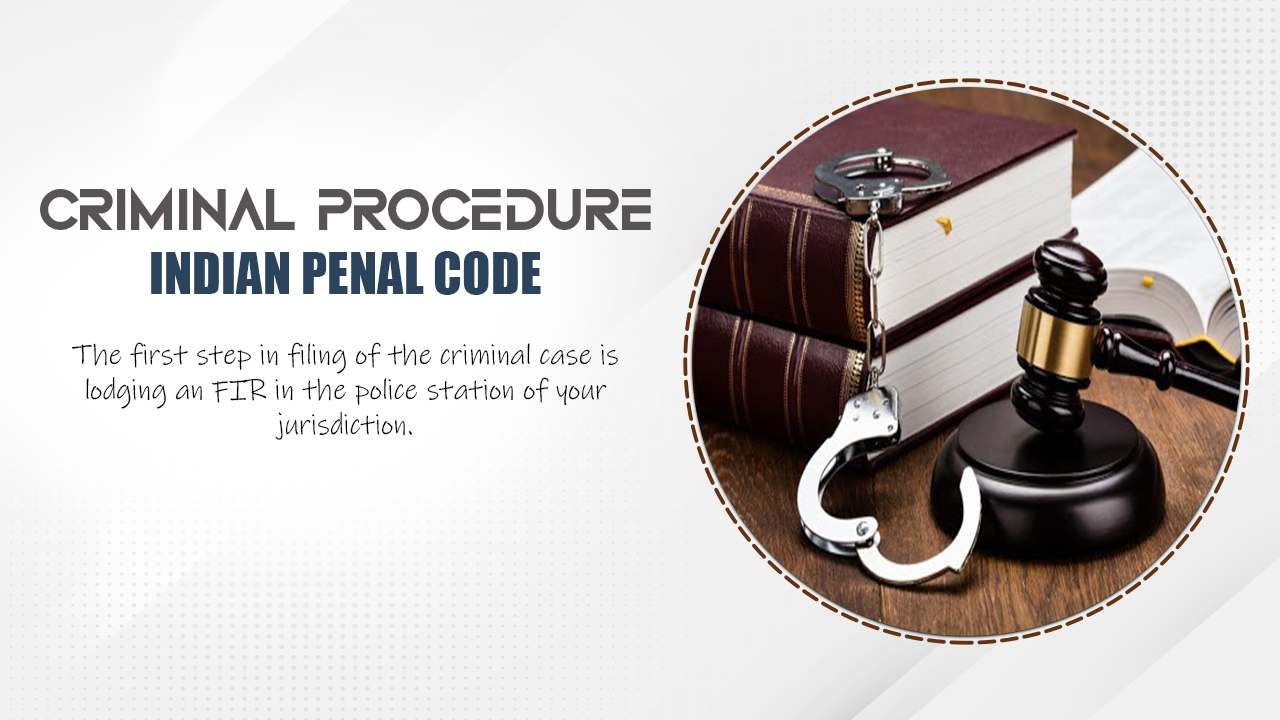Criminal Procedure Under Indian Penal Code
Criminal proceedings are generally the last resort to recover the debt from a person. In this case you have the option of initiating criminal proceedings against the defaulter under the Indian Penal Code, 1860, starting with filing an F. I. R against the defaulter.
You can file a criminal case against the person who has not repaid your loan under the Indian Penal Code with the offence of cheating, breach of trust or mischief. The first step in filing of the criminal case is lodging an FIR in the police station of your jurisdiction. Once the investigation is concluded a case can be instituted in a Court of appropriate jurisdiction preceded by a legal notice to the accused. A criminal case acts as an efficient remedy owing to the retributive nature of the punishments and penalty.
Track Your Status
Criminal Procedure Under Indian Penal Code Registration Package
Rs.10,000/-+18% GST
- What we provide
- Documents required
- Certificate of Incorporation (CIN)
- Permanent Account Number (PAN)
- Memorandum of Association (eMOA)
- Articles of Association (eAOA)
- Director’s Identification Number (DIN No)
- Digital Signature (DSC)
- GST Registration
- Company 2 Name
- Companies Object
- Address Proof (Rent Agreement, Receipt, Electrical Bill, Owner Property tax)
- Director's PAN, Aadhar, Voter Card
- Director's Electrical Bill
- Director's Driving Licence or Passport (If any)
- Director's Last 6 months Bank statement
- Director's Photo
- Director's Email and Mobile
Action Under Criminal Indian Penal Code, 1908
Section 406: Criminal breach of trust – under this section, the person who commits criminal breach of trust shall be punished with imprisonment of either description for a term which may extend to three years, or with fine, or with both.
Section 417: Cheating – This case will apply when there is a proven case of cheating against the breaching party and has cheated with the money shall be punished with either one year of imprisonment, or fine, or both.
Section 420: Cheating and dishonestly inducing delivery of property – This section is applied in case of dishonor of cheques or post-dated cheque issued towards payment of the price of the goods purchased or hand loan taken. The charge-sheet contains an allegation that the accused had dishonest intention to not pay even at the time of issuance of the cheque. The defaulter can be punished with imprisonment for up to seven years or fine or both.
Section 426: Punishment for Mischief- Whoever commits mischief in paying off the debt shall be punished with imprisonment of either description for a term which may extend to three months, or with fine, or with both.
Need Consultancy? Ask Tax Seva Kendra Expert@ Rs. FREE
- Free Consultancy
- Online Documentation
- Anywhere In India





